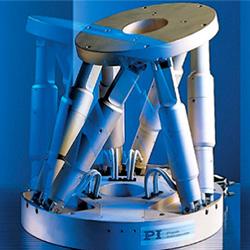Optimizing your warehouse to streamline business

The ecommerce landscape moves quickly, and customer expectations for speedy and accurate deliveries have never been higher. To satisfy customers' needs, warehouse management has become increasingly important, making efficient warehouse operations a crucial aspect of ecommerce. No matter the business’s size, strong, optimized warehouse management stands as the cornerstone of a successful supply chain, overseeing everything from inventory intake to order dispatch.
The Linnworks State of Commerce Ops Report offers valuable insights into the challenges and priorities facing retailers and consumers in 2024. This comprehensive survey of retailers and consumers sheds light on key trends, preferences, and areas of focus that directly impact warehouse optimization. As the ecommerce landscape evolves, warehouse efficiency plays a pivotal role in meeting consumer expectations and driving profitability. To help you navigate this landscape effectively, here are four tips to optimize your warehouse operations and ensure sustained success.
Harness Data Collection for Warehouse Insights
Effective data collection empowers warehouse managers to pinpoint areas of strength and areas needing improvement, enabling informed decision-making. The report reveals that a significant number of online retailers still rely on custom-built (42%) and manual integrations (46%) to link their operations to marketplaces. These statistics underscore the reliance on antiquated systems that may compromise efficiency and accuracy.
Effective data collection empowers warehouse managers to pinpoint areas of strength and areas needing improvement, enabling informed decision-making. In the fast-paced world of ecommerce, it's vital to use resources wisely. When brands or stores take on the task of integrating their own systems or creating custom software, they risk wasting resources that could be better spent elsewhere. These resources, often not crucial to the brand's uniqueness, should be focused on building what sets the brand apart. Businesses can achieve this by prioritizing the development of unique strengths while relying on expert software providers for essential tasks.
Technology teams should be encouraged to innovate where it counts, while specialized software providers handle the nuts and bolts of back-office systems. Barcode inventory management illustrates the benefits of this approach, seamlessly integrating with warehouse systems to gather key data on processes like purchase orders, stock levels, and product locations.
Conduct Regular Inventory Audits for Operational Clarity
Your warehouse serves as the heart of your business operations, and without proper organization, it can quickly become chaotic. 52% of consumers want free shipping and free returns as the impact of inflation over the last two years is still being felt. Regular inventory audits serve as a proactive measure to mitigate these challenges by ensuring precise stock levels and locations. These audits enhance inventory visibility, providing a clearer understanding of product availability and locations. This clarity minimizes the risks associated with overstocking or stockouts, facilitating informed decision-making regarding reorders, and stock rotations. We have to "name the problem to tame the problem" meaning - we have to see and visualize the problem to be able to recognize it before we can address it. We need that data to help expose the issues so that businesses can optimize.
Diversify Your Shipping Solutions to Enhance Customer Satisfaction
Shipping plays a pivotal role in shaping the overall customer experience. The report highlights key concerns among consumers, with delays (62%), damage to items (44%), and incorrect deliveries (33%) topping the list. You can effectively address these challenges by offering diversified shipping options and partnering with multiple carriers. Integrating with various shipping providers like FedEx, UPS, USPS, and Amazon Shipping allows you to offer flexible delivery options and tap into exclusive customer bases. This diversification improves shipping efficiencies and opens doors to untapped market segments.
Embrace warehouse management technology
Embracing warehouse management technology is crucial for modern retailers aiming to stay competitive. Integrating cutting-edge technology and automation offers comprehensive control, visibility, and efficiency and aligns with retailers' key areas of focus for 2024. With 39% of U.S. retailers planning to invest in technology and automation, the emphasis is on reliable commerce operation management, sustainability, and collaboration with warehouse and fulfillment partners. Centralizing systems and investing in connectivity and automation are strategic moves that enable retailers to break into new markets efficiently, optimize sales channels, and streamline logistics.
Optimizing your warehouse has significant financial benefits as well. Every year, businesses lose substantial amounts of money because of mis-ships, out-of-stocks, returns, and human error, which can all be associated with inefficient practices. All of these mishaps can be avoided by optimizing your warehouse workflow. As the popularity of online retailers increases, it’s imperative to minimize mistakes and boost performance and capabilities. Adopting a connected commerce platform can simplify everyday operations, leading to better order management and customer satisfaction.
About Linnworks:
Linnworks is a Connected CommerceOps platform that gives online retailers the power to connect, automate, and scale their e-commerce operations from a single source of truth.
Our solution brings three core attributes to the retailer: connectivity to a diverse number of marketplaces, automation to traditionally time-consuming e-commerce processes, and a centralized platform to manage listings, inventory, orders, and shipments.
With over 4,000 customers and $15 billion GMV processed every year, Linnworks empowers small and medium e-commerce retailers to simplify their commerce ops, drive new revenue, exceed customer expectations and streamline logistics.
Diana Nolting is the Vice President, Product at Linnworks. She brings over 12 years of experience in product development and strategy to her role as VP of Product at Linnworks. Diana leads an all-star product team delivering true inventory transparency, at scale, for ecommerce retailers.
Diana's extensive background in SaaS product development was shaped by key roles at pioneering companies such as Bluelock (acquired by Intervision Systems) and Anvl, where she played a crucial part in applying cloud technologies to solve complex business issues.
Comments (0)
This post does not have any comments. Be the first to leave a comment below.
Featured Product

